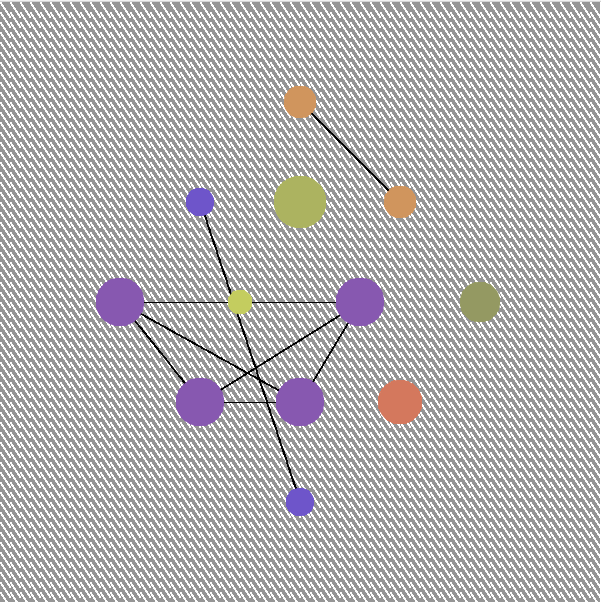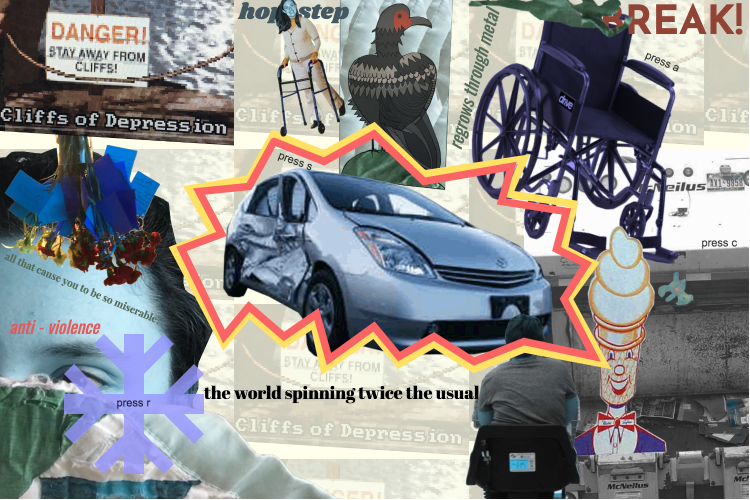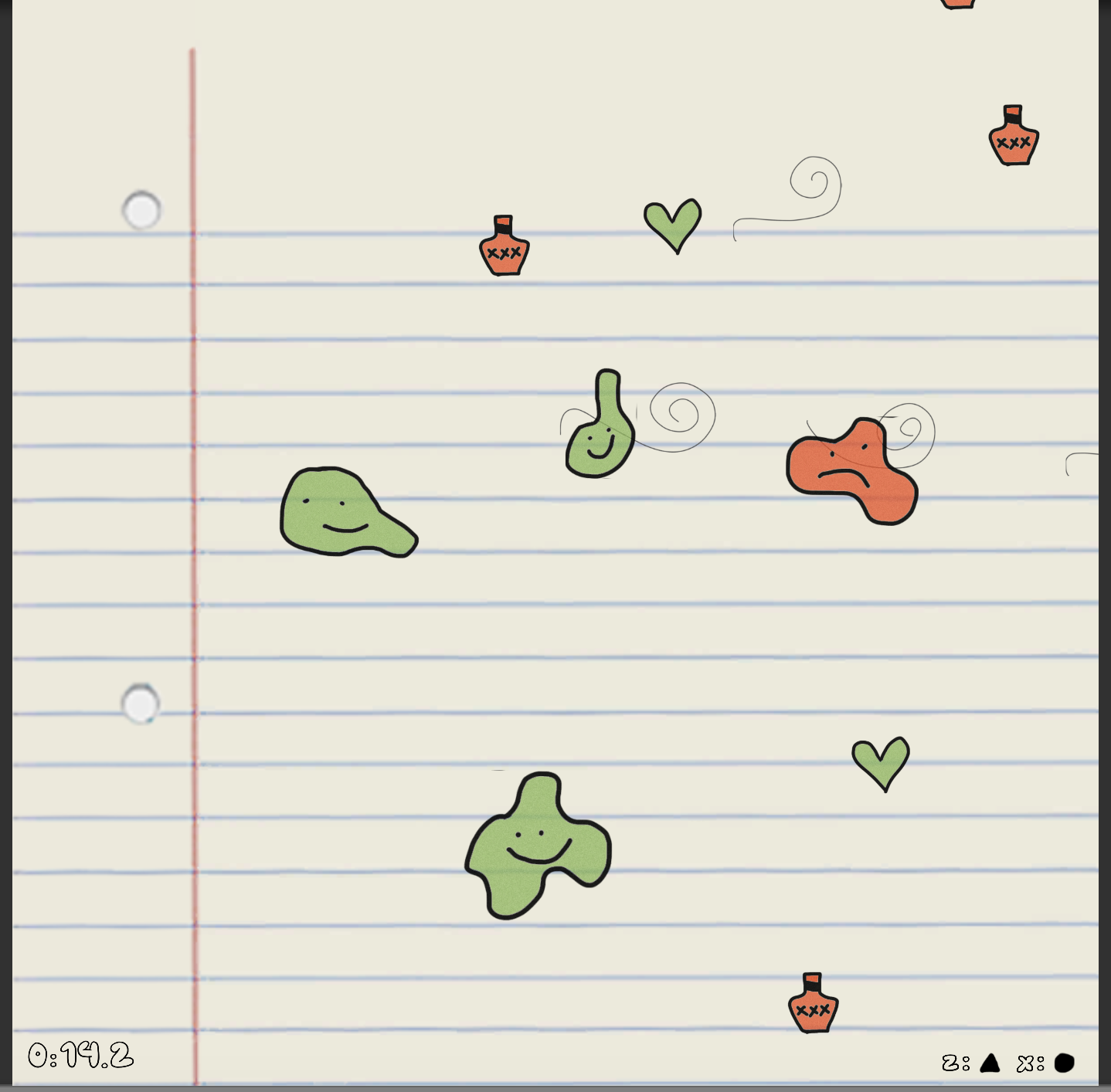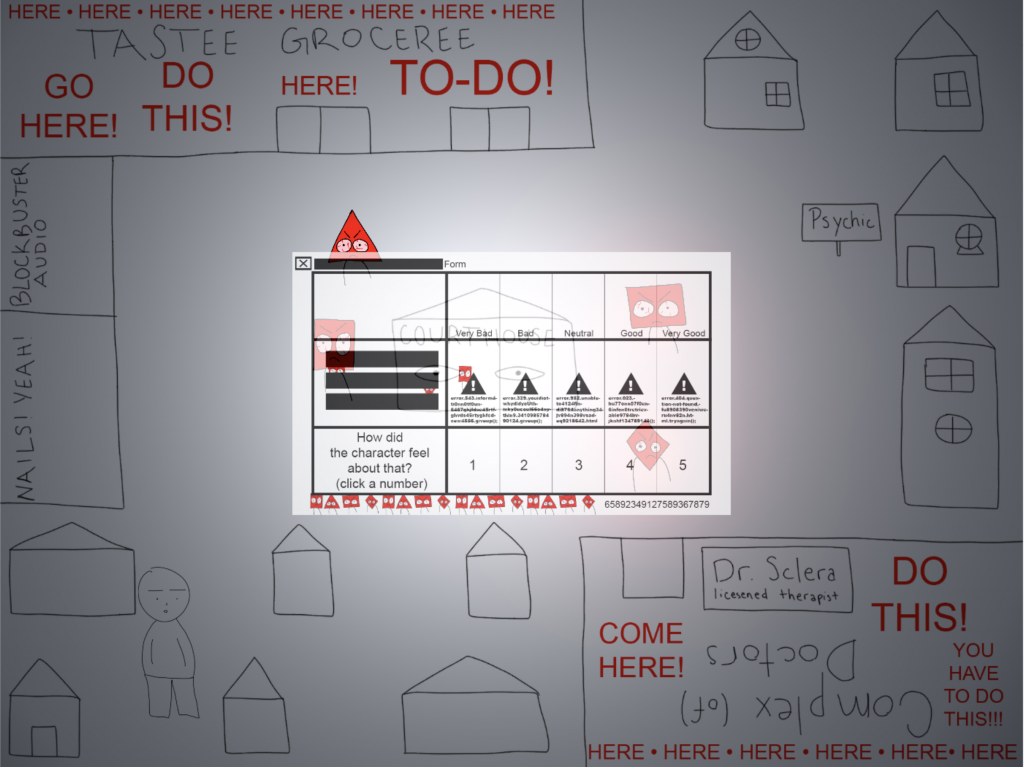
Over the course of this semester, as I came to terms with my own social anxiety, I decided to center my game around my new understandings of anxious feelings in social spaces. I wanted to convey these through some simple art rules which were that the only colors I could use were black, white, and red. Initially I set this color scheme just so that the player would clearly see who was evil and/or where to go, and I had planned to add more color, but as time passed I liked the way that just the red looked in the palette as part of the metaphor, with everything falling into the background when the player focuses on the “scary” part of the game. My other main form of dramatization was the repetition of the eyes. I wanted the evil townspeople to have eyes that were unsettling, and then I decided to highlight that element in the doctor level. A more subtle part of the metaphor was handwriting as compared to Arial. I wanted the player to feel as if they were interacting with a cold faceless entity at some points, and at others I wanted it to feel more human, sometimes as comfort (like in the psychic’s predictions) or as something more personal (like the gossip in the grocery store).
I tried to create nonlinearity by making a disconnect between the labels on the entrances of buildings and the inside of the levels. I wanted the grocery store and the doctor’s office levels to feel incredibly stressful and be a completely abstracted form of how anxious people experience those places. I made the grocery store into a maze with doors of people talking about the character behind their back because the grocery store is a place that can often make me feel watched or crowded. I wanted the doctor’s office to be a place where the central character “faced their fears” in a way, standing in front of the eyes the whole time, but still running away from the zones of vision. I wanted these scenes to be intense and frustrating in very mundane situations.
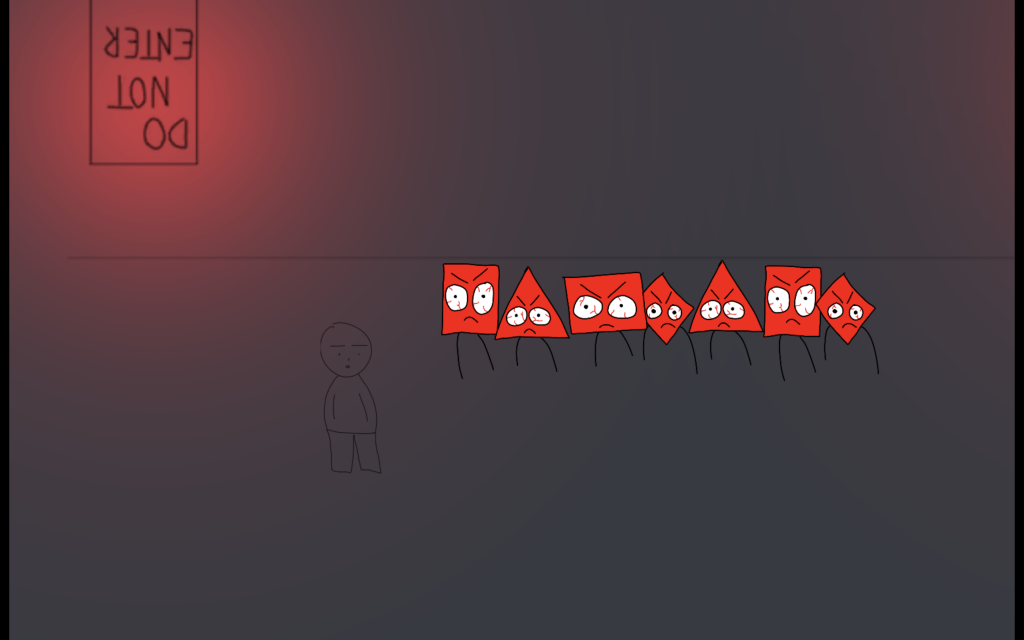
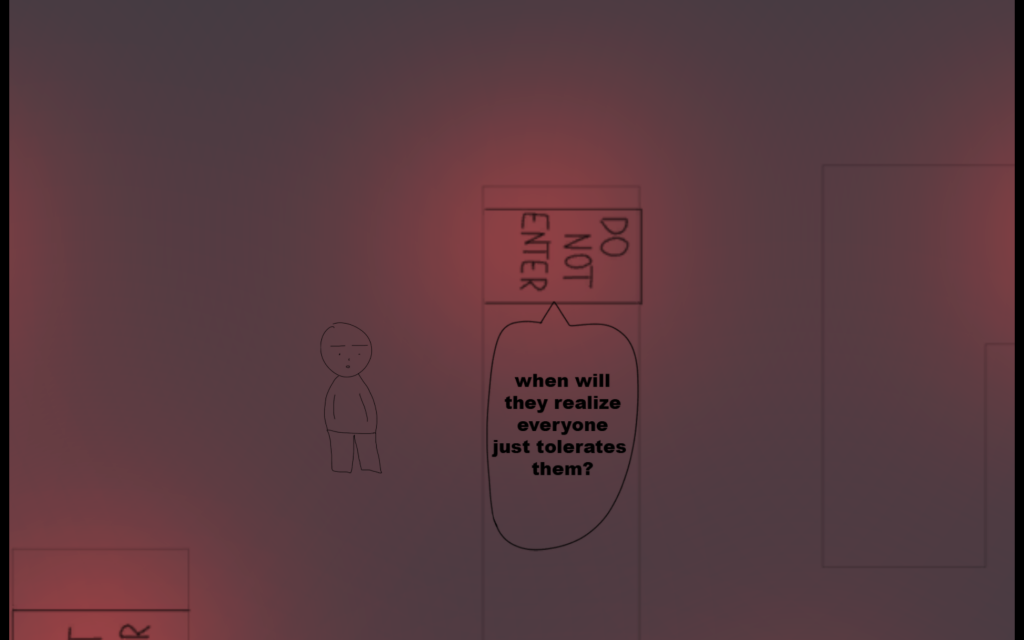
People really liked (or were affected by) the maze level. Generally when people played it they became very frustrated, which was what I had wanted, so it was a funny moment of seeing them be so frustrated at me and my game, but I was delighted with that. The success of my game that I was happiest about was that people understood what I was trying to make them feel when they played it. By using a few design elements and not letting myself add to them, I think it helped me to most clearly convey a sense of anxiety that the player got as they “failed” the level over and over, restarting every time.
I had also expected music integration to take longer and be more difficult, but once I had found the clips I wanted to include, adding small bits of code to connect them to buttons was much easier and more effective than I anticipated.
Setting up the battle scene was by far the hardest part of development. I ended up not including my battle scene in this build because I wasn’t able to build it out in a way that I liked, as the BattleManager and EnemyController scripts were having a hard time talking to each other. I was frustrated that I had planned a battle that I wanted to create but was just too big for this project, but I think I’m going to add that to a version of the game in the future.
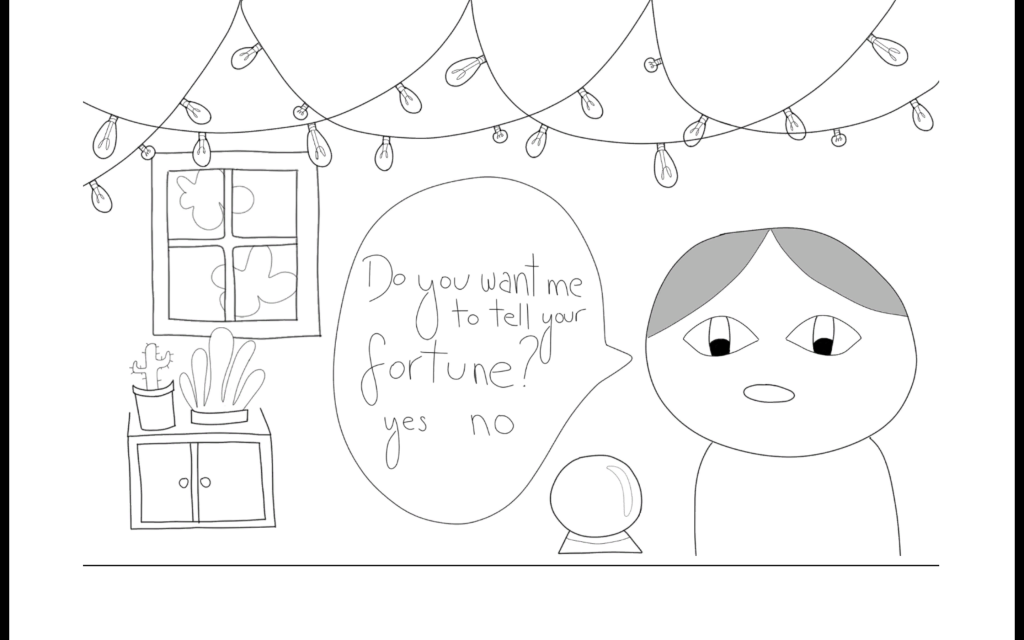
I also had frustrations and complicated feelings in relation to my UI popup form. At the end, I’m happy with its effect on the game, but I did get frustrated that people were just clicking random numbers. But that’s how people were playing the game, so I needed to make some adjustments. I added a close button on the UI and edited the way that closing the form affected the player’s “score” that was sent to the psychic. I’m not thrilled with the mechanics as they are right now because they’re a little clunky, but in a future version of the game I want to make this “score” and the psychic’s predictions more nuanced and more affected by the player’s other choices within the world.
I’m incredibly proud of the game I’ve made, and it’s hard to believe that I made it just this semester. There are hundreds of little (and some big) changes I’d like to make, but I feel that this semester was an exercise in working through the moments when I hated my game and pushing through them to create something that I’m ultimately very proud of and want to share with other people.
